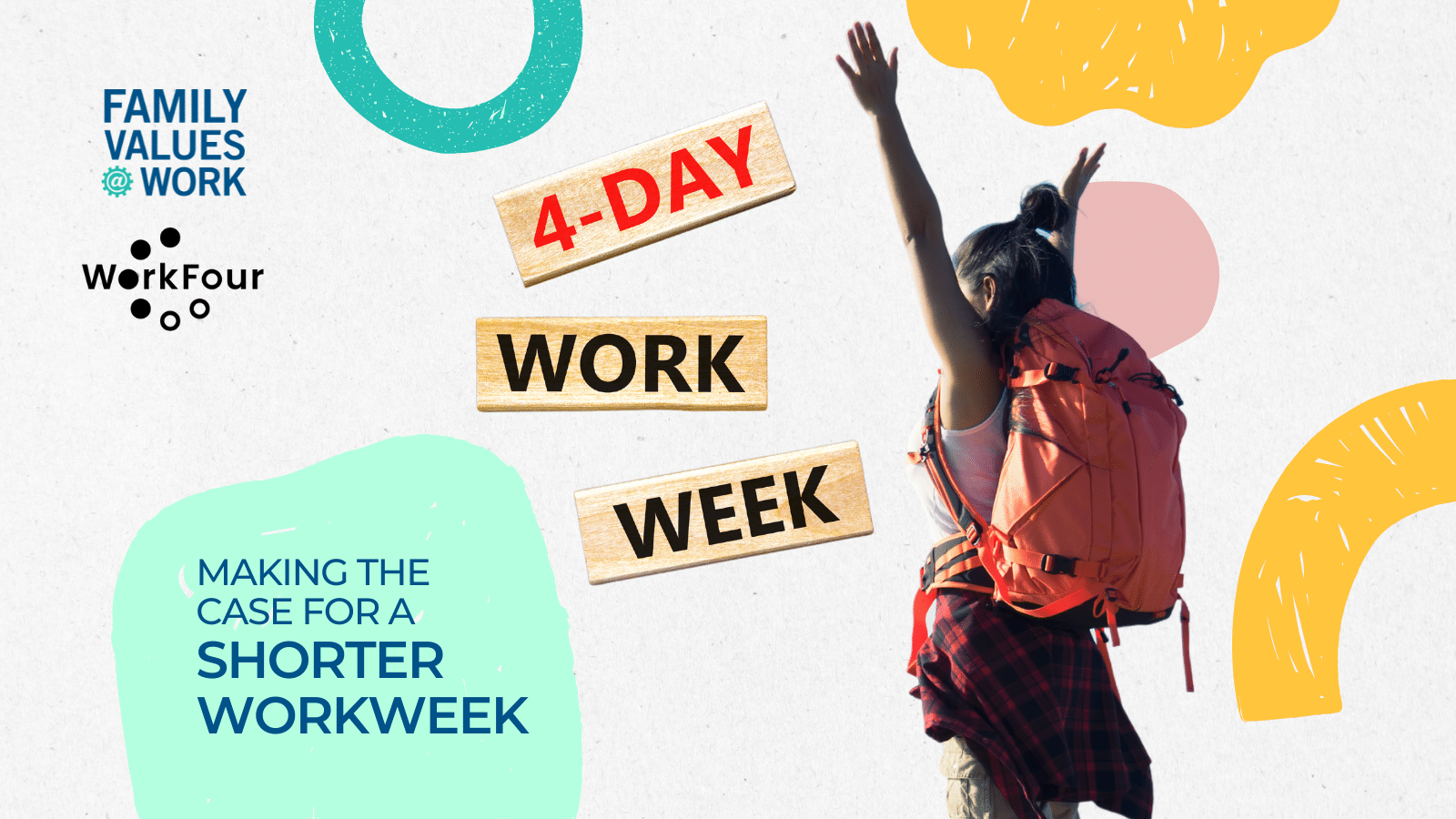Four-Day WorkWeek Provides A Better Work Life Balance for Mothers, Caregivers and Families

Washington, D.C. – Family Values @ Work (FV@W) recently released a case study highlighting the lessons learned from their four-day workweek experience. The study shows that the four-day work week helps provide support to families during and after the pandemic.
This Moms Equal Pay Day, it is important to remember that a four-day workweek is a vital solution that can address the significant wage gap faced by mothers who perform unpaid labor as caregivers. Gender inequity is an economic burden faced by women who work outside of the home while performing domestic duties in the home. As more women join the workforce with traditional roles remaining the same, the four-day workweek is a solution, along with paid leave, that can help even out the playing field for working mothers.
“Instituting a four-day work week was important to demonstrate to our staff that we support them as whole people: both employees and caregivers with personal commitments,” said Erica Clemmons Dean, deputy director of FV@W. “Having a 32-hour work week has allowed me as a caregiver to balance my schedule of work and appointments for my family. It also allows for more rest to be incorporated into my week.”
In 2021, FV@W piloted the 32-hour workweek to address staff exhaustion amid the pandemic. After the pilot, the shorter workweek became an organization-wide practice. With the changing role of caregiving and responsibilities, the 32-hour workweek is becoming the norm for many companies.
The FV@W case study shows that the four-day workweek offers the following benefits to mothers and families: improved work-life harmony, more time to care for loved ones, reduced commute time, increased job satisfaction and greater focus and efficiency. In a survey conducted with FV@W staff in 2022, 100 percent of staff gave a positive or very positive rating in support of the four-day workweek with the top benefits being: more time to rest and get care, more flexibility for travel and other recreation, and more time to spend with family and friends.
“The 4-day, 32-hour workweek is a pro-family and pro-social policy that benefits all workers, but especially mothers and caregivers who often shoulder the majority of unpaid labor. We are so excited by FV@W’s adoption of the 4-day workweek because of the alignment between their powerful external advocacy and their thoughtful internal workplace culture,” said Vishal Reddy, Executive Director of WorkFour, whose mission is to make the 4-day, 32-hour workweek with no loss in pay the standard for all in the U.S.
So, as we recognize Mom’s Equal Pay Day, let us also remember that mothers and caregivers deserve to be not only paid for their labor but also afforded the time through a four-day workweek to care for themselves or their chosen family.